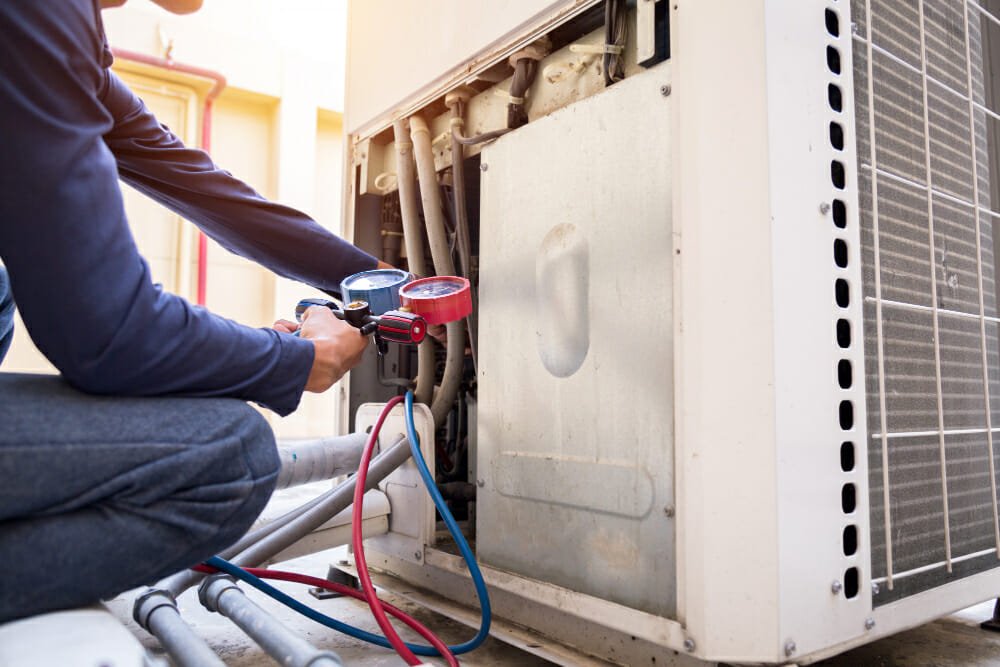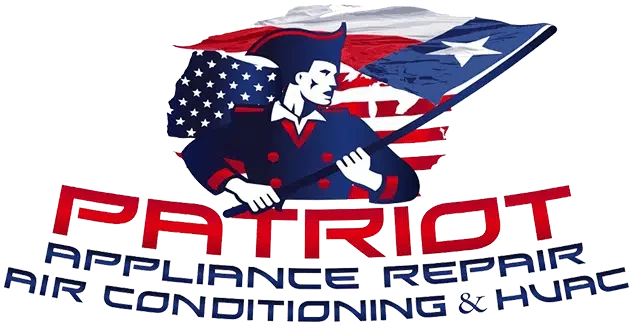HVAC Maintenance Guide: Tips, Checklist, and FAQs

HVAC systems ensure a comfortable and healthy living environment, especially during extreme weather conditions. However, these systems require regular maintenance to function efficiently and safely. Neglecting HVAC maintenance can lead to costly repairs, reduced system lifespan, and poor indoor air quality.
Here are some essential HVAC maintenance tips for homeowners:
- Schedule professional HVAC preventive maintenance annually. A qualified technician can inspect your system for potential problems, clean crucial components, and perform necessary tune-ups. This can help prevent major breakdowns and extend the life of your HVAC system.
- Change the air filters regularly. Dirty air filters restrict airflow, making your HVAC system work harder. This can reduce efficiency, increase energy costs, and damage the system. Change your air filters every 1-3 months or more often if you have pets or allergies.
- Maintain proper airflow. Blocked vents and ducts can restrict airflow and reduce HVAC system performance. Ensure all vents are open and unobstructed, and have your air ducts professionally cleaned every 3-5 years.
- Clean the outdoor unit. Remove debris, leaves, and grass clippings around the outdoor unit to ensure proper airflow. You can clean the unit yourself with a hose and a brush, but avoid using high-pressure water.
- Monitor your energy bills. A sudden spike in your energy bill may indicate a problem with your HVAC system. Contact a qualified technician for inspection and diagnosis.
Here is a recommended HVAC maintenance checklist:
Monthly tasks:
- Check air filters for dirt and clogs.
- Inspect the HVAC system for visible issues, such as leaks, strange noises, or other irregularities.
- Clean the outdoor unit of debris, leaves, and grass clippings.
Seasonal tasks:
- Before the onset of extreme temperatures, schedule a professional HVAC check-up and tune-up.
- Ensure your HVAC system is appropriately programmed to maintain a comfortable and energy-efficient temperature.
Annual tasks:
- Have a qualified technician deep clean the entire HVAC system, including the coils, ducts, and drain lines.
- Replace any old or worn-out parts.
- Consider a comprehensive system assessment to identify potential problems or improvement areas.
Is HVAC preventive maintenance worth it?
Absolutely! Regular HVAC preventive maintenance can lead to several benefits, including:
- Cost savings: By catching problems early, you can avoid costly repairs and replacements.
- Extended system lifespan: Properly maintained HVAC systems last longer than neglected systems.
- Improved energy efficiency: A well-maintained HVAC system consumes less energy, lowering energy bills.
- Better indoor air quality: A clean and efficient HVAC system helps improve indoor air quality by removing dust, pollen, and other allergens.
Frequently Asked Questions (FAQs)
Why is regular HVAC maintenance essential?
Regular HVAC maintenance ensures system efficiency, safety, and longevity. A properly maintained HVAC system will last longer, consume less energy, and provide better indoor air quality.
How often should HVAC filters be changed?
HVAC filters should be changed every 1-3 months or more often if you have pets or allergies. Dirty air filters can restrict airflow, making your HVAC system work harder and reducing efficiency.
Can I perform HVAC maintenance myself, or should I hire professionals?
While some basic tasks, such as filter changes, can be DIY, it is recommended to have a qualified technician perform comprehensive HVAC maintenance. This includes cleaning the coils, ducts, and drain lines, inspecting the system for potential problems, and performing necessary tune-ups.
How much does HVAC preventative maintenance cost?
HVAC preventive maintenance costs vary depending on the location and the specific services required. It is best to get quotes from local providers.
Conclusion
Regular HVAC maintenance ensures a comfortable, healthy, and energy-efficient home. By following the tips above, you can help extend your HVAC system’s life, reduce energy costs, and improve indoor air quality.
